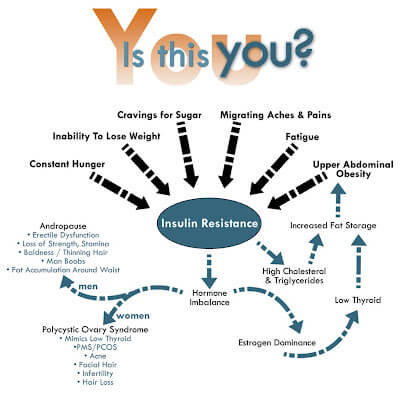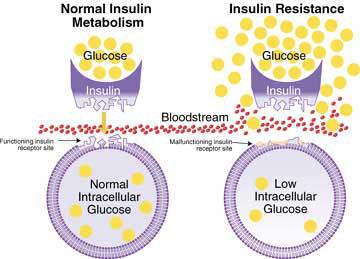{Fitness Tips} Are You Insulin Resistant?
How do you know if you’re insulin resistant? And why does it matter? Understanding the hormone insulin is a crucial part of health, fitness and of a fat loss lifestyle for moms.
When it comes to burning the baby fat and getting your body back, insulin can be either your best friend or your worst enemy.
Last week in my “Are your hormones making you fat?” post, I briefly mentioned the storage hormone insulin. I told you that for optimal fat loss, you need to improve your insulin sensitivity.
After I made this post, I got hundreds of emails from women asking for MORE details on HOW they can improve their sensitivity to insulin. Readers also asked what they should do if they’re already insulin resistant.
Insulin is a very misunderstood hormone in the world of health and fitness, yet it’s vital for optimal fat loss. So, in the next few weeks we’re going to dive deeper into the subject of insulin resistance & sensitivity:
- WHAT is insulin resistance?
- WHY does it matter?
- HOW can you improve it?
Part 1: What is insulin resistance?
Insulin is a hormone that is produced by the pancreas and tells the cells in the liver, muscles and fat to absorb glucose in the blood, particularly after a meal. Your body needs insulin to aid in nutrient uptake in the cells, and without this hormone, your cells would starve.
The primary stimulator for insulin release is glucose in the blood stream.
Glucose levels rise in response to food and stress, and the main job of insulin is to lower blood sugar (glucose) by getting the extra glucose to the cells, where they are burned for energy or stored as fat.
The problem is that when insulin is repeatedly secreted in large quantities over time, your cells can become less sensitive (resistant) to its signals.
Think of the FIRST time you ever changed a VERY dirty diaper. (You know, the ones that stink up the entire room and make you wish you had a gas mask….. usually right as your little one transitions to sold food) When you first smell that dirty diaper, you’re VERY aware of the stench. The smell is strong. One whiff makes you gag, right?! But over time, and after several dirty diapers, you become more accustomed to the smell of a dirty diaper, it begins to make you gag less and less, and eventually- you don’t even realize it stinks that much at all!
This is what happens to your cells when they become insulin resistant.
They no longer respond to insulin the same way. They become accustom to the insulin and are less sensitive (or are “resistant”) to the signals it is sending.
How do you know if your body is resistant to insulin?

A Few Common Indicators of Insulin Resistance:
- Low blood sugar: Mild, brief periods of low blood sugar are normal during the day, especially if meals are not eaten on a regular schedule. But prolonged hyperglycemia with some of the symptoms listed here, especially physical and mental fatigue, are not normal. Symptoms include feeling agitated, jittery, moody, nauseated, or having a headache.
- Mood Changes: Crankiness, irritability, loss of energy, jittery and feeling constantly concerned about when you will eat again?
- Increased Triglyceride levels: This is common in overweight people but often thin (“skinny fat”) insulin resistant people will have elevated triglyceride levels as well.
- High blood pressure: Often a rise in blood pressure goes hand in hand with a rise in blood insulin levels too.
- Fatigue: Chronic fatigue as well as brain fogginess and inability to focus, lack of motivation, and trouble remembering things.
- Depression: Because carbohydrates are a natural “downer,” depressing the brain, it is not uncommon to see that women who are depressed also have Insulin Resistance.
- Sleepiness: Many people with Insulin Resistance get sleepy immediately after eating a meal exceeding their Carbohydrate Tolerance.
- Weight issues: Including weight gain, fat storage, difficulty losing weight, or an increase in abdominal fat.
- Menstrual issues: This can range from less than nine menstrual cycles in a year (more than 35 days between cycles) to no menstrual periods. Some women with insulin resistance (often linked with PCOS) have regular periods but are not ovulating every month. This means that their ovaries are not releasing an egg each month. Many also struggle with infertility.
In part two of this series, we’ll discuss why insulin resistance is a problem, so make sure you stay tuned!
If you haven’t joined the BeyondFit Life Club yet, you are missing out! Get tips like the ones shared above, more tricks for your fat loss journey, as well as a team of women just like you who want to #dofitnessbetter cheering you on! Join today!

